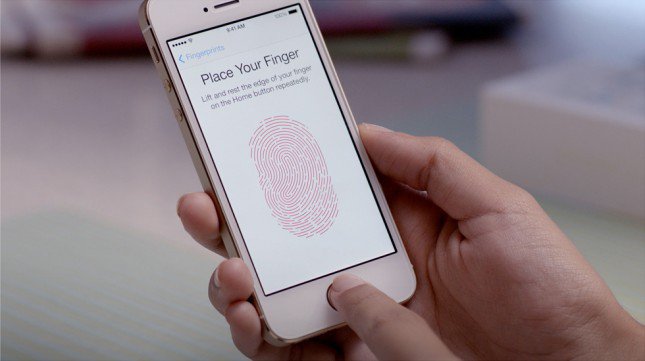What Are Exoplanets And How NASA Detects Life Beyond Our Solar System
Bharti Airtel Set To Acquire Telenor India Within This Year
Google Celebrates NASA’s Discovery Of Seven Earth-Like Planets With An Animated Doodle
Some Home Remedies That Might Sound Bizarre But Actually Work Like A Charm
Akshay Kumar Feels He Has Made Enough Money, Now Wants To Focus On Content & Characters
Delhi ATM Dispenses Fake Rs 2000 Notes From ‘Childrens Bank of India’ With ‘Churan Lable’
Adolf Hitler’s Personal Telephone During World War II Is Up For Auction In The US
From Salman Khan To Rekha, Neil Nitin Mukesh’s Wedding Reception Was Quite A Starry Affair
Scientists Devise Way to Transfer Secure Passwords Through Your Body
Scientists have devised a way to send passwords through the human body - using smartphone fingerprint sensors and laptop touchpads - rather than over airborne radio waves like Wi-Fi or Bluetooth which are vulnerable to hacking. University of Washington computer scientists and electrical engineers have devised a way to send secure passwords through the human body using benign, low-frequency transmissions generated by fingerprint sensors and touchpads on consumer devices. “If I want to open a door using an electronic smart lock, I can touch the knob and touch the fingerprint sensor on my phone and transmit my credentials through my body to open the door, without leaking that personal information over the air,“ explained Merhdad Hessar, a student at the university. Sending a secret code over Wi-Fi or Bluetooth means anyone can eavesdrop. “Fingerprint sensors have so far been used as an input device. We have shown for the first time that these sensors can be re-purposed to send out information confined to the body," said Shyam Gollakota, assistant professor at UW.
The process employs a sequence of finger scans to encode and transmit data. The team achieved rates of 50 bits per second on laptop touchpads and 25 bits per second with fingerprint sensors -fast enough to send a password or code through the body and to a receiver within seconds.
In tests with 10 different subjects, the researchers were able to generate usable on body transmissions on people of different heights, weights and body types. The system also worked when subjects were in motion.
“We showed that it works in different postures, like standing, sitting and sleeping. We can also get a strong signal throughout your body. The receivers can be anywhere -on your leg, chest, hands -and still work,“ said Vikram Iyer, a UW electrical engineering doctoral student.
Normally, sensors use these signals to receive input about your finger. However, the engineers devised a way to use these signals as output that corresponds to data contained in a password. When entered on a smartphone, data that authenticates your identity can travel securely through your body to a receiver embedded in a device that needs to confirm who you are.
The technology could also be useful for secure key transmissions to medical devices which seeks someone's identity before sending or sharing data.






